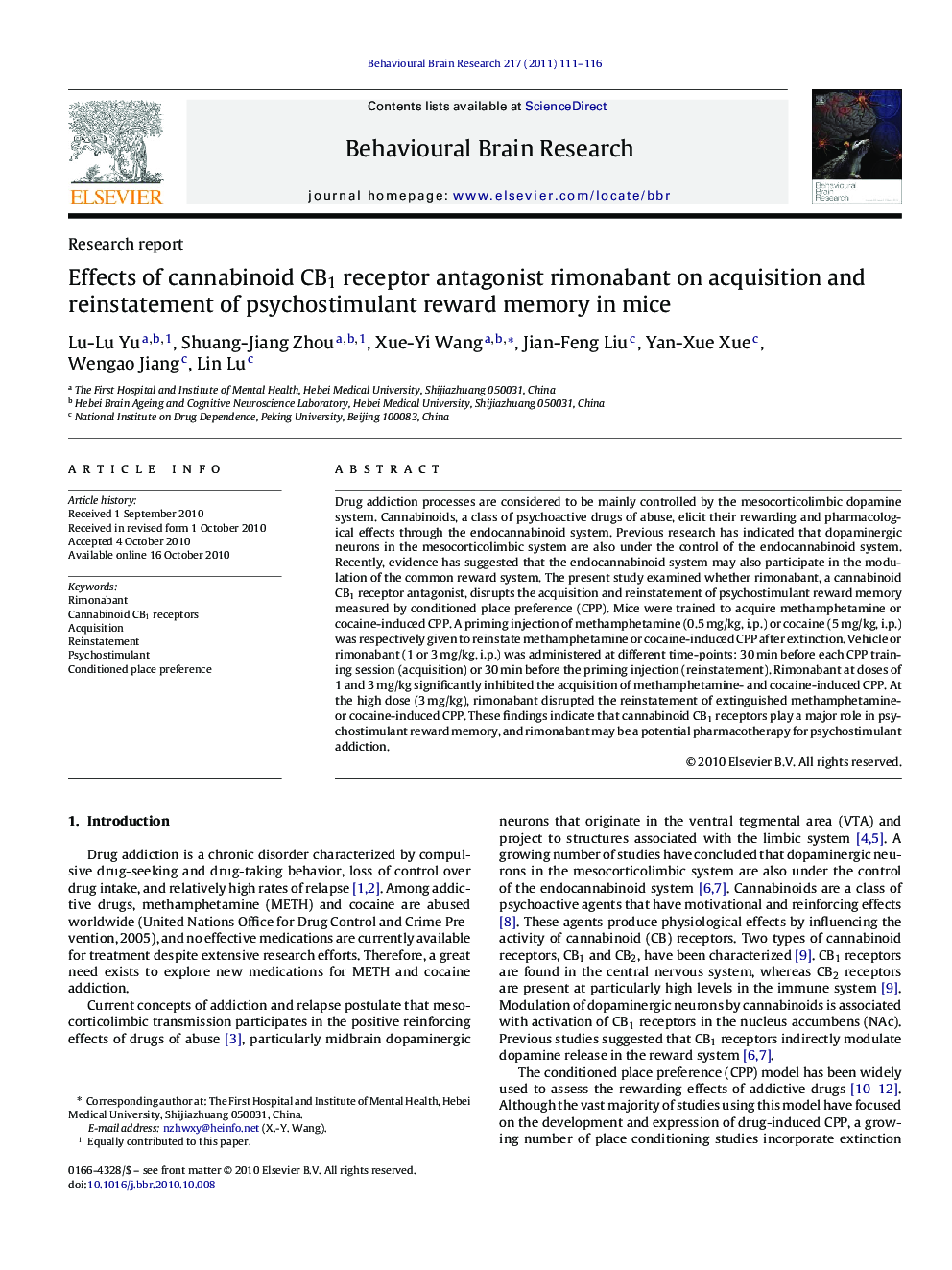| کد مقاله | کد نشریه | سال انتشار | مقاله انگلیسی | نسخه تمام متن |
|---|---|---|---|---|
| 4313872 | 1290016 | 2011 | 6 صفحه PDF | دانلود رایگان |

Drug addiction processes are considered to be mainly controlled by the mesocorticolimbic dopamine system. Cannabinoids, a class of psychoactive drugs of abuse, elicit their rewarding and pharmacological effects through the endocannabinoid system. Previous research has indicated that dopaminergic neurons in the mesocorticolimbic system are also under the control of the endocannabinoid system. Recently, evidence has suggested that the endocannabinoid system may also participate in the modulation of the common reward system. The present study examined whether rimonabant, a cannabinoid CB1 receptor antagonist, disrupts the acquisition and reinstatement of psychostimulant reward memory measured by conditioned place preference (CPP). Mice were trained to acquire methamphetamine or cocaine-induced CPP. A priming injection of methamphetamine (0.5 mg/kg, i.p.) or cocaine (5 mg/kg, i.p.) was respectively given to reinstate methamphetamine or cocaine-induced CPP after extinction. Vehicle or rimonabant (1 or 3 mg/kg, i.p.) was administered at different time-points: 30 min before each CPP training session (acquisition) or 30 min before the priming injection (reinstatement). Rimonabant at doses of 1 and 3 mg/kg significantly inhibited the acquisition of methamphetamine- and cocaine-induced CPP. At the high dose (3 mg/kg), rimonabant disrupted the reinstatement of extinguished methamphetamine- or cocaine-induced CPP. These findings indicate that cannabinoid CB1 receptors play a major role in psychostimulant reward memory, and rimonabant may be a potential pharmacotherapy for psychostimulant addiction.
Research highlights▶ Cannabinoid CB1 receptor antagonist rimonabant inhibited the acquisition of METH- and cocaine-induced CPP. ▶ The reinstatements of METH- and cocaine-induced CPP were disrupted by high-dose (3.0 mg/kg) rimonabant. ▶ CB1 receptors play a major role in psychostimulant reward memory, and rimonabant may be a potential pharmacotherapy for psychostimulant addiction.
Journal: Behavioural Brain Research - Volume 217, Issue 1, 2 February 2011, Pages 111–116